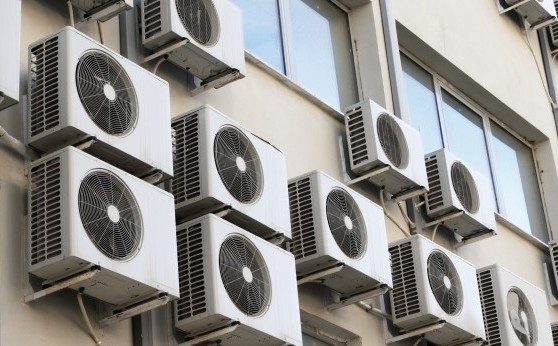At COP 21, governments and industry leaders in the Climate and Clean Air Coalition committed to further essential advances in reducing short-lived climate pollutants (SLCPs) that have a global warming potential many times that of the main greenhouse gas carbon dioxide.
At the Focus Event on SCLPS under the Lima to Paris Action Agenda at COP21, the Climate and Clean Air Coalition (CCAC), whose Secretariat is hosted by the United Nations Environment Program, committed to double their membership in two key initiatives to reduce these pollutants – in freight and landfills – as well as detailing advances in the critical area of refrigeration.
They pushed forward a proposal for hydrofluorocarbons (HFCs) to phase down under Montreal Protocol, jointly with many ministers. The Protocol signed in 1987 aimed at suppressing gas harming the ozone layer (CFCs) which have been mainly replaced by hydrofluorocarbon gas (HFCs).
Thoriq Ibrahim, Minister of Environment of Maldives, said that his country was supporting a move to reduce HFCs through the Montreal Protocol.
The two co-chairs of the CCAC, Hanne Bjurstrøm (Climate Envoy, Norway) and Marcelo Mena (Vice Minister of Environment, Chile) detail the progress achieved by CCAC initiatives so far and future commitments in various sectors, such green freight, municipal solid waste and alternatives to HFCs.
These key sectors have committed to reducing Hydrofluorocarbons HFCs by 30 to 50 percent from refrigerant servicing within 10 years.
HFCs are gases typically used in cooling and refrigeration with Global Warming Potential (GWP) hundreds to thousands of times that of CO2. The phase-out of high-GWP HFCs from air conditioning alone will not only avoid the equivalent of 100 billion tonnes of CO2 by 2050, but can also lead to more energy efficient air conditioners and related cuts in CO2 emissions.
UTC/Carrier join Kevin Fay, executive director of Alliance for Responsible Atmospheric Policy to make commitments to reduce HFCs. They are members of the Global Food Cold Chain Council (GFCCC), including Coca-Cola, Unilever, and the Global Refrigerant Management Initiative which commits to:
reduce the use and emissions of high-GWP HFCs, enhance energy efficiency and reduce food loss in the cold food chain.
The objective is to achieve a 30-50% reduction in HFC emissions from refrigerant servicing within 10 years. Coca Cola and Unilever reiterated their commitments as part of Refrigerants, Naturally! a Lima to Paris Action Agenda initiative that includes Greenpeace as a partner.
The group has also committed to dramatically reduce emissions of CO2, black carbon and other pollutants in the freight sector by 2025 through a more efficient, cleaner & greener, multimodal, global freight supply chain is made at the SLCP Focus Event.
The LPAA initiative Global Green Freight Action Plan, gathers more than 20 countries, civil society organizations and 4 major companies (Volvo, Deutsch Post DHL, Ikea, and Hewlett Packard), and aims to double by 2018 the countries that are committed to establish new or enhance existing green freight programs or initiatives.
By 2025, the top 100 global shippers will include black carbon mitigation efforts into their existing sustainability efforts.
The Global Green Freight Action Plan is led by CCAC, a voluntary, multilateral, multi-stakeholder global partnership. The transportation sector contributes about 19 percent of black carbon emissions in the world. Heavy-duty diesel vehicles, such as those used for freight transportation, have a disproportionate impact on climate and air quality.
The Municipal Solid Waste Initiative, also led by CCAC, aims to mitigate short-lived climate pollutants from the landfill sector. It is currently working with over 50 cities around the world to develop and implement sustainable waste management practices to reduce emissions from SLCPs.
At the Focus Event, the initiative commits to get at least another 50 cities to develop and implement quantifiable plans of action to reduce SLCPs from the waste sector by 2020, and a thousand cities to develop robust waste management systems.
Landfills are the third largest anthropogenic source of methane, accounting for approximately 11% of estimated global methane emissions.
editor@greentechlead.com

